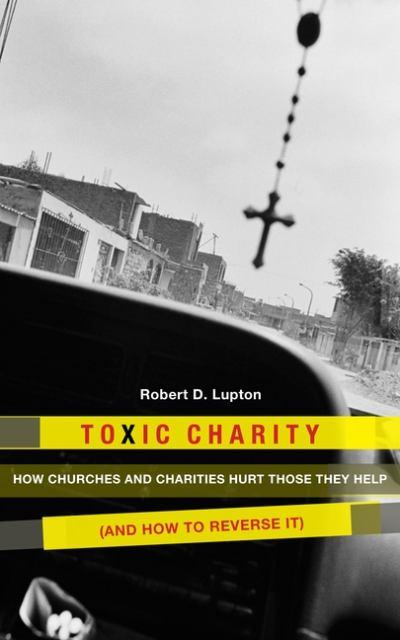 “Toxic Charity”, by Robert D. Lupton. HarperCollins. New York. 2011. 191 pages.
“Toxic Charity”, by Robert D. Lupton. HarperCollins. New York. 2011. 191 pages.
Review by Steve Hyde
You could have entitled this book, “Blowing my own horn”. The entire book basically uses Lupton’s own ministry as the “model” of a good NGO/ community program. Though this book attempts to apply to international NGO’s and does use a couple of case studies from Central America, this book is essentially a case study of Atlanta, Georgia.
Lupton’s premise is that short-term mission trips intend good results, but often have a negative effect. He states: “Contrary to popular belief, most mission trips and service projects do not: empower those being served, engender healthy cross-cultural relationships, improve local quality of life, relieve poverty, change the life of participants or increase support for long-term mission work.” On the contrary, they do: “weaken those being served, foster dishonest relationships, erode recipients’ work ethic and deepen dependency.” Obviously, these are all generalities and I am sure each of these has some truth to them, however, I do not believe this to be “most mission trips” (certainly not from my experience as a receiver of mission trips). While there are numerous unprepared mission trips, I believe most mission ministers genuinely desire to be as effective as possible.
Lupton does have some good points which include a kind of “Hippocratic oath” for short-term trips:
The Oath for Compassionate Service
- Never do for the people what they have (or could have) the capacity to do for themselves.
- Limit one-way giving to emergency situations.
- Strive to empower the poor through employment, lending, and investing, using grants sparingly to reinforce achievements.
- Subordinate self-interests to the needs of those being served.
- Listen closely to those you seek to help, especially to what is not being said- unspoken feelings may contain essential clues to effective service.
- Above all, do no harm.
Would I recommend this book for mission committees or people who are engaged in community development? Maybe, but not as a stand-alone book. You will find few broad principles which would apply in an international context. It follows a theme of many similar books like “Dead Aid”, “When Helping Hurts” which is that much of community development is done poorly. So poorly, in fact, that it creates dependencies and additional problems. Pretty much everyone knows that. However, I don’t believe Lupton’s book offers any practical or effective solutions.
Thanks for your thoughts, Steve. I recently read this book and agree with your observations. While I like the Oath for Compassionate Service, helping others can sometimes just be messy. I wish someone would write a book about all of the good things that have resulted from the involvement of short-term teams that strive to be careful, intentional, and strategic in their work.